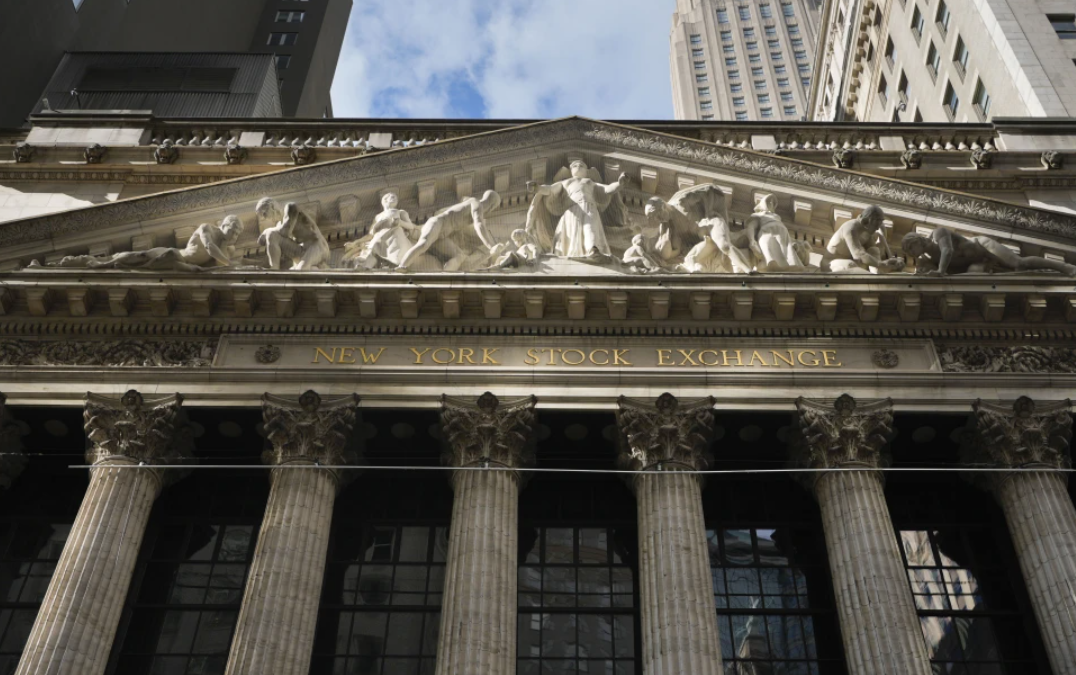U.S. stocks were volatile again on Wednesday, with investors reacting to the looming announcement of tariffs by President Donald Trump, part of his so-called “Liberation Day” plan, which could significantly reshape global trade and the economy.
The S&P 500 was down 0.3% in morning trading after recovering from an earlier 1.1% drop. This week has seen a trend of sharp early losses followed by gains by the market’s close. The Dow Jones Industrial Average fell by 140 points, or 0.3%, while the Nasdaq composite dropped 0.2%.
Tesla’s disappointing delivery numbers for the first quarter weighed on the market, with the company’s shares falling 2.2%, adding to its year-to-date loss of 35%. Tesla, a major player on Wall Street, has been under increased scrutiny due to growing concerns about CEO Elon Musk’s involvement in political efforts to reduce U.S. government spending.
Global markets have been jittery due to uncertainty surrounding Trump’s planned tariffs, set to be announced after the U.S. stock market closes. Trump has claimed these tariffs aim to create a fairer global trade system and bring manufacturing jobs back to the U.S.
However, tariffs could slow economic growth both domestically and internationally, while potentially driving inflation higher, which remains above the Federal Reserve’s 2% target. Key details about the tariffs—such as their scale, targeted countries, and specific products—remain unclear, and the announcement may not fully resolve market uncertainties, as it could mark just the beginning of further negotiations.
Some analysts remain hopeful that the worst of the tariff-related uncertainty is behind us. Kurt Reiman, head of fixed income Americas at UBS Global Wealth Management, noted that much of the administration’s trade agenda has already been implemented, with numerous potential exits from the current situation.
Trump’s planned tariffs follow previous actions, including 25% tariffs on auto imports, levies against China, Canada, and Mexico, as well as expanded tariffs on steel and aluminum. He’s also imposed tariffs on countries importing oil from Venezuela and plans new taxes on pharmaceuticals, lumber, copper, and computer chips.
Another concern is that the unpredictable rollout of Trump’s trade policies could cause consumer and business confidence to dip, potentially leading to reduced spending and economic damage.
Despite these worries, a report from ADP Research suggested that the U.S. job market remains stronger than expected, with companies hiring at a faster pace last month. This could be a positive sign ahead of Friday’s official employment report, which is expected to show a slowdown in job growth for March.
The job market has been a key factor keeping the U.S. economy out of recession. In the bond market, the yield on the 10-year Treasury fell to 4.14% from 4.17% the previous day and down from around 4.80% earlier this year, reflecting concerns about the economic impact of tariffs.
On Wall Street, Newsmax’s stock plummeted 36.3% on its third day of trading, reversing some of its massive gains from earlier in the week. Internationally, European indexes fell, following mixed performances in Asian markets.














